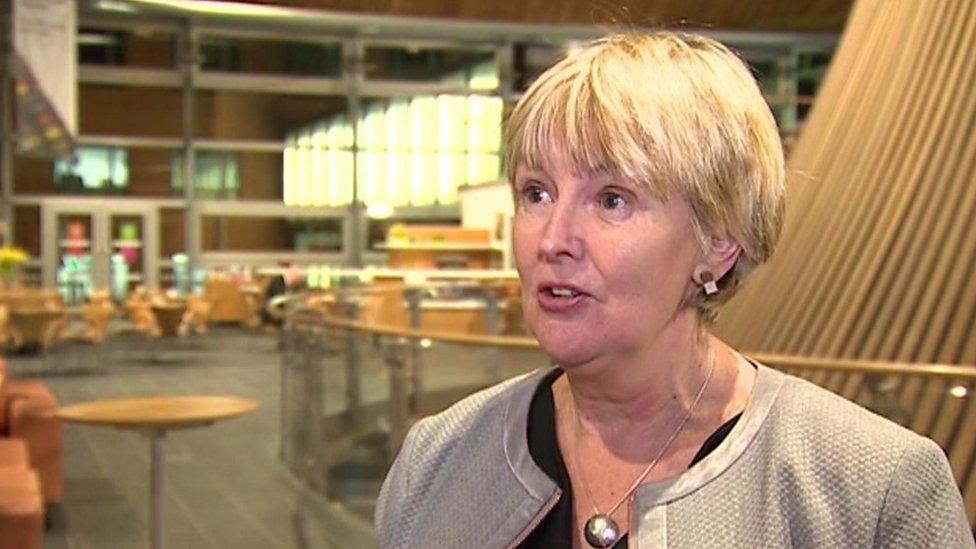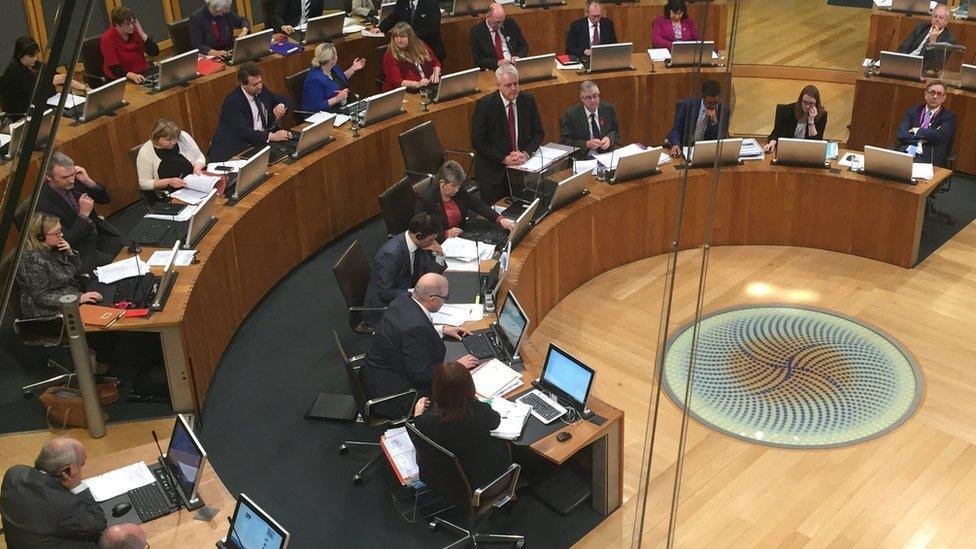Call for equal assembly member gender quota
- Published

A new law is needed to ensure a 50/50 gender quota in the assembly, Plaid Cymru's Sian Gwenllian has said.
Ms Gwenllian said robust action was needed to tackle the inequality of representation in politics.
A total 42% of AMs elected in 2016 were women - fewer than in 2003 when the number of men and women was equal.
But a UKIP Wales spokeswoman said quotas should be opposed, and candidates should be considered "on their skills alone".
A recent report commissioned by the assembly recommended a gender quota for the next assembly election.
Ms Gwenllian, Plaid's women and equalities spokeswoman, set out the case for gender quotas in a Senedd debate on Wednesday.
She said: "This year marks a hundred years since women were granted the vote - a good time to take stock of what has been achieved in the struggle for equality.
"While it's important to celebrate the suffragettes' victory, we must recognise that there is a long way to go in tackling the gender pay gap and inequality of representation."
At the 2016 election, 25 of the 60 AMs elected were women while in 2003 it was a 30-30 split.
'Meritocracy'
A UKIP Wales spokesman said: "Why stop at gender quotas? How about quotas for race, age, creed or a myriad of other characteristics - the list is endless. The mind boggles at how they would contend with the different demands of multiple quotas.
"UKIP Wales believes in true meritocracy and considers people on their skills alone, irrespective of protected characteristics. We oppose gender quotas on these grounds everywhere."
The Expert Panel on Assembly Electoral Reform recommended last year that a gender quota be integrated into the electoral system by the 2021 elections, as well as calling for more members and votes at 16.
Presiding Officer Elin Jones said, when the report was published, that she hoped to see a "stronger, more inclusive and forward-looking legislature".
It would be up to AMs to implement the findings of the report but any changes will require a law to be passed in the assembly with a two-thirds majority.
- Published12 December 2017

- Published20 October 2017

- Published13 June 2017
